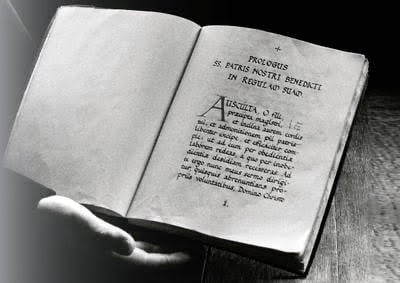On Humility
Jan. 31
The third degree of humility is that a person for love of God submit himself to his Superior in all obedience, imitating the Lord, of whom the Apostle says, “He became obedient even unto death.”
Reflection
We can sum up the third degree of humility in the word ‘obedience’. But here again the question for us as oblates is how can we put it into practice outside the monastery without an abbot at our side? Let us consider Jesus in the silence of the garden of Gethsemane. How can we follow Him when we hear nothing but ourselves? Obedience springs from the love of God, and only yielding ourselves to Him, with the little love we have, will lead us confidently along this path of obedience and will make us go out of ourselves.






